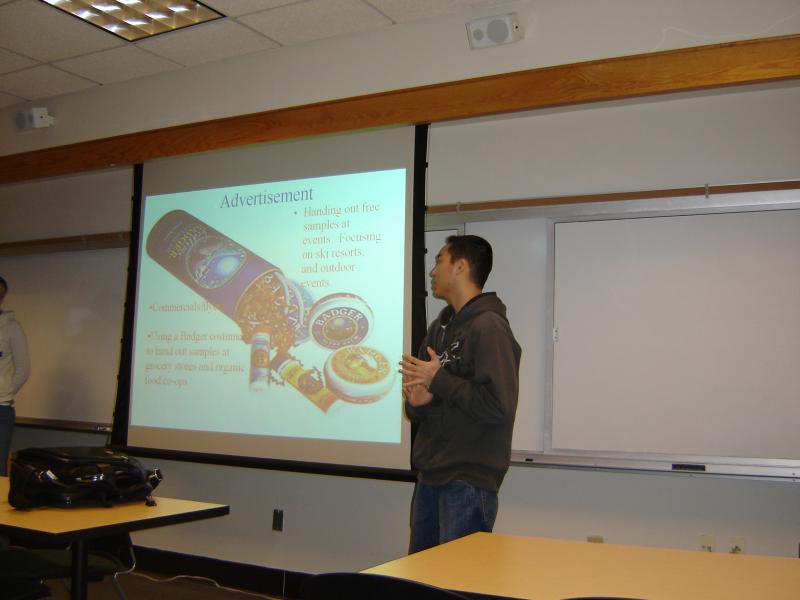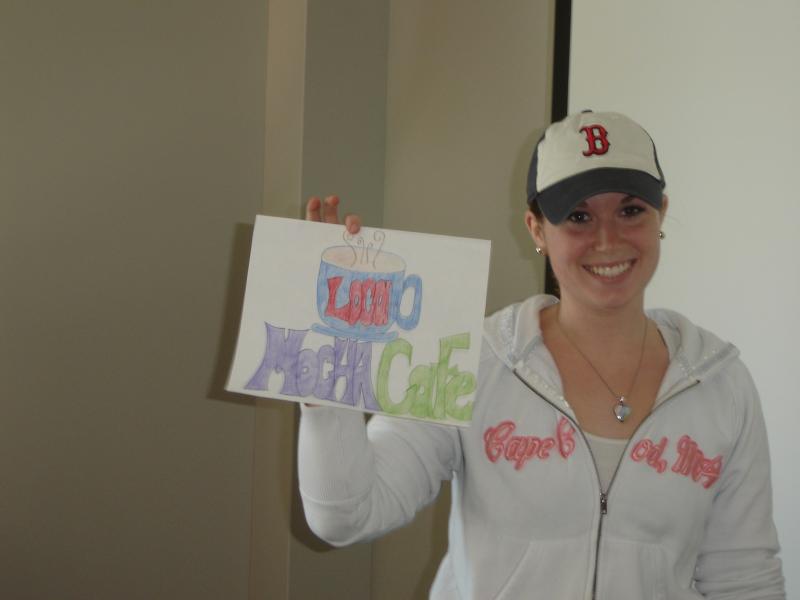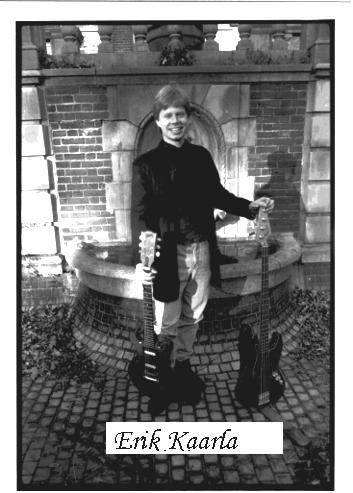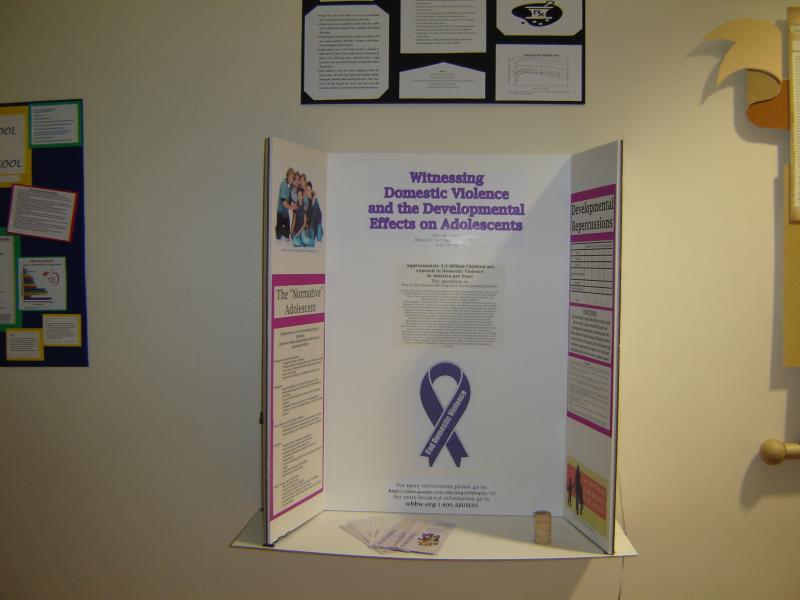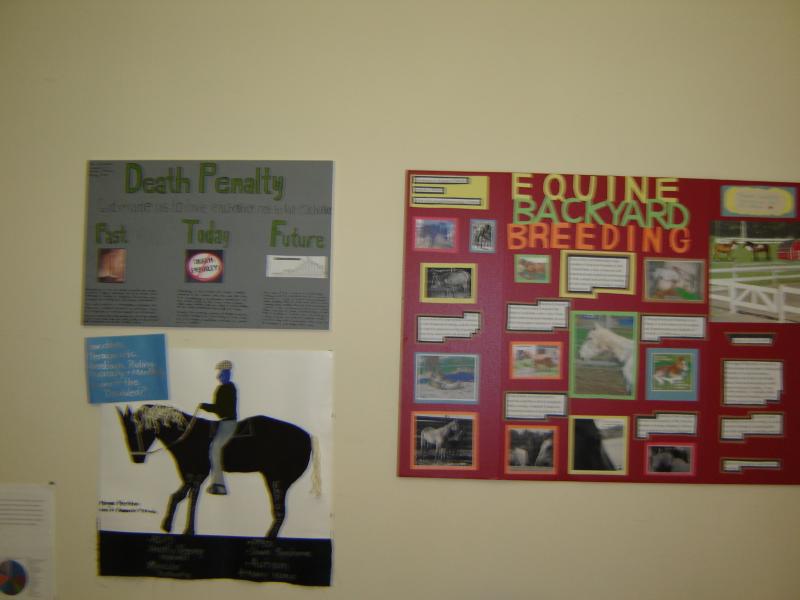Erik Kaarla, Educator
Colchester, VT 05446
ph: (802) 660-0699
erikkaar
Primary Courses Instructed

As an educator, it is often difficult for me to pin down the exact disciplines that are the most meaningful to explore within the context of the classroom. My professional background is one of working with the writing process to a large extent and pursuing it to the bitter end! Whether this entails leading a class of students in the composing of a research paper or in the writing of a life narrative by an individual client, the mystery of the writing process and its successful negotiation are two areas that I enjoy offering help with. The tricky negotiation of drafting and revising take place in hard science papers and in simple personal narratives alike. Finding a road map through this process is what I enjoy achieving for any students or individual clients that I am working with. As in the photo above -- after completing a difficult writing process a massage can bring back some mental health!
The classes that I enjoy instructing the most certainly center around writing. Some of these include:
- Business Communications
- Writing for the Workplace
- Literature
- Public Speaking
One of my favorite pair of courses to teach is the series of CREW 1 to CREW 2 at Champlain College. This particular course series concentrates on critical reading and expository writing and essentially covers a wide variety of thematic topics spanning the gamut from gender issues (woman as the other as discussed in the works of Simone de Beauvoir); the appeals that modern information society puts on us daily to behave and buy certain products and services; the ethical issues contained in the considerable decision making necessary for surviving hour by hour in modern western culture. As these themes are explored, students are able to engage in classroom discussion and to revisit their belief systems through expository essays, PowerPoint projects, team presentations, and advertising analysis.
In CREW 1 I tend to use a writing methodology written by Dr. John Lannon of the University of Massachusetts Dartmouth with whom I had the pleasure of taking several writing courses with in the nineties. His writing tips tend to concentrate on giving students many options for kick starting and refining their writing processes. These are invaluable tools to possess for students needing to navigate multiple writing projects within one semester.
In CREW 2, I approach students with material that will help them to write and discuss ideas that go beyond being limited to the classic modes. The course quickly moves into more modern expository devices such as the uses of critique, synthesis, and analysis when dialoguing with particular textual ideas. Students are hopefully able to see these writing tools as existing on many levels of rhetoric and form.
One of the first texts that we explore in the beginning of the course is the introduction to "The Second Sex" written by Simone De Beauvoir in 1949. While exploring De Beauvoir's brilliant ideas connecting the plight and characterization of women to historical patterns of problematic thinking, students are also able to observe how her writing often transcends holding to any one classical writing mode. As she explores her thinking, De Beauvoir often offers critique and analysis simultaneously creating elaborate webs of thinking. It is noteworthy that her thinking within the introduction alone contributed to making this work the most radical feminist work of the time.
The CREW 2 course studies rhetorical appeals, the use of fallacies and logic, and how many of these are featured in modern advertising. Students are encouraged at every step to find modern connections between the thinking of Plato, Socrates, and Aristotle. What continues to excite me in the classroom is the enormous amount of ancient world thinking that seems virtually unknown to the college sophomore of today. I believe that the bringing in of older texts and models of knowledge is essential for engaging the student of today.
For Saint Michael's College and for Champlain College I also instruct basic business classes that focus on writing and rhetorical strategies that work best within the modern business environment. Team assignments and cooperative efforts are highlighted throughout the semester.
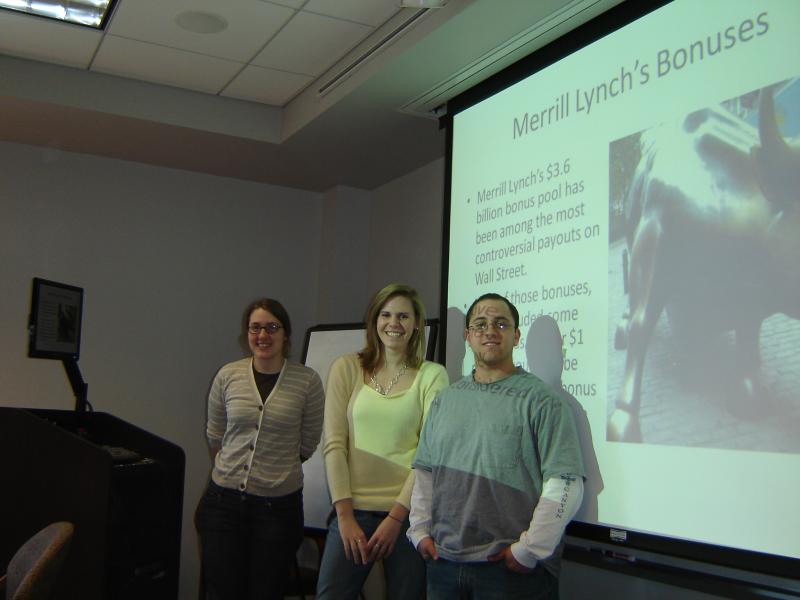
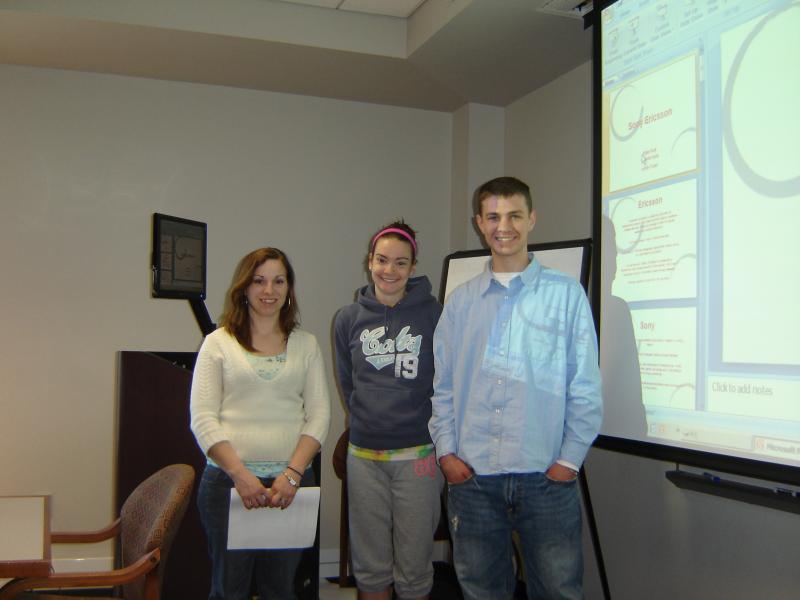
Instructional Offerings Outside of the Classroom
I offer instruction in some other areas as well as in the classroom. Most recently I have offered self-counseling through the writing of life narratives. These narratives essentially are meant for individuals to explore "where they have been" and "where they are going". Essentially, I help with the writing process labor necessary for developing these life narratives.
In addition to life narrative work, I work with students on guitar and bass skills both in our home and in clients' homes. Music has been a part of my life for as long as I can remember; playing the guitar and bass give me a sense of "getting out of my head" and into my body and soul.
I provide highly specialized musical instruction with an emphasis on general musicality, knowledge of genre-specific techniques, and original composition. My main focus tends to be on the direction that the individual student wants to go in. Some students may aspire to become great technicians, while other students may simply be interested in exploring their creativity through the language of music. Before embarking on a program of study, I always inquire into the direction that the student wants to go in. At this point I will tailor my teaching to fit with the schedule and pathway that the student wants to embark upon in relation to the guitar or bass.

Introduction to Research
At the Community College of Vermont in Winooski, I am currently involved in instructing both Composition 1 & 2 and Introduction to Research. I am finding that the research course allows for numerous interdisciplinary approaches and I have attempted to move the course away from purely statistical study and more towards how research can best be conducted in whatever discipline the student is working in. Students can come at the research class from angles of psychology, sociology, history, anthropology, etc. The textbook by Ranjit Kumar facilitates this process by introducing a variety of techniques and approaches that can prove effective when negotiating the research process. The culmination of the course involves the creation of a standard 10 to 12-page research paper in MLA or APA format. Students are encouraged to create interesting visuals in order to offer more complex insights of their research findings.
Another aspect of the course that is important is that students develop a sense of being able to speak about their research and their methods with their peers and other instructors. The research process should not be made out to be mysterious or only for the use of the most skilled researchers; instead, I believe that students should work towards approaching a research task as any fledgling journeyman might - basic knowledge is combined with critical thinking to create further knowledge.
Students will inevitably create a poster board that is meant to shed light on their ongoing research projects. Several unique examples follow:
Student poster boards allow for both visual creativity and design layout skills to soar and I believe that this process allows each student to slow the research process down to its core components.
Pedagogy Statement
My personal belief is that the classroom can and should be a forum for free thinking and intellectual inquiry. Within its "four walls" exists the opportunity for students and instructor alike to weigh all ideas and methodologies. The instructor brings in academically accepted models and the students should challenge these models in order to see if they hold water; the competent instructor welcomes this process. It is within this learning dynamic that magnificent events can occur. The wisdom of the academe is tested in this way and the instructor proves his or her mettle by leading the class through a mutually respectful process of inquiry.
It is the instructor’s role to facilitate the creation of the proper atmosphere in the classroom through offering powerful and honest guidance. The materials that an instructor uses should be of great quality and the result of careful forethought. Through using only the best support materials does an instructor do the students justice.
A classroom should be a safe and focused environment for all its members. There should be a time and place for silence and for euphoric moments alike.
I am a great advocate of modeling – giving the students a sense of the form of things allows them to understand what may be considered "classic" or an archetype. From there they are able to develop further towards the creation of something completely original. Reaching all the students equally may not always be possible, yet it must be attempted every time when “having class.”
Copyright 2009 Erik Kaarla, Educator . All rights reserved.
Colchester, VT 05446
ph: (802) 660-0699
erikkaar
